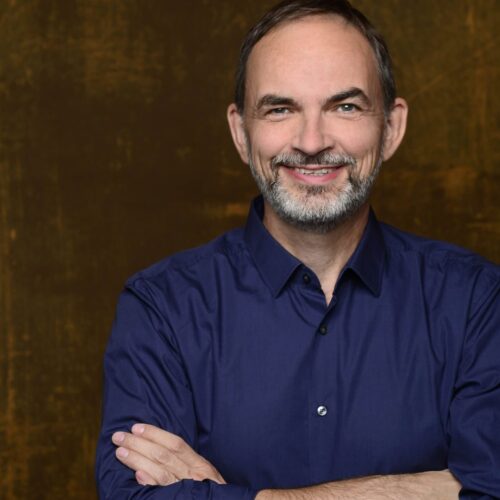What is especially remarkable is that these protests brought together people from very different backgrounds, age groups, and life situations — from big cities to rural areas. They expressed a collective “now more than ever” spirit, driven by the desire to no longer stand by but to take a clear stand.
“Engagement is a cornerstone of our democracy.”
30.07.2025
 Photo: Stiftung für Zukunftsfragen
Photo: Stiftung für Zukunftsfragen
In this interview, Professor Dr. Ulrich Reinhardt, Scientific Director of the Foundation for Future Studies, an initiative of BAT, discusses the challenges facing our society in times of geopolitical tensions, the climate crisis, digitalization, migration, and demographic change.
In the US, President Trump promises to make the country great again. In Germany, the AfD is gaining significant support with calls to return to traditional family structures and a more homogeneous society. Why is the idea of a supposedly better past attracting so much support right now?
Our analyses show that the longing for a “better yesterday” is primarily an expression of growing insecurity, driven by changes in social dynamics, new technologies, and both global and personal challenges. For many, a return to traditional values and structures offers a sense of stability and orientation in an increasingly complex world.
In addition, although the number of recorded crimes has been declining since the 1990s, many citizens’ subjective sense of security has not increased to the same extent. Media coverage plays a central role here, often focusing on individual cases and thereby creating a distorted picture of everyday society. Emotions often have a stronger impact than statistics, especially when insecurity is already the prevailing feeling.
Furthermore, we live in a time when traditional securities such as a stable career path, clear family models, or firm political convictions are increasingly losing their reliability. Orientation is shifting from institutions to personal networks, digital communities, or individual value systems. Yet, especially during moments of social transformation, community, cohesion, and dependable relationships are gaining importance once again.
The challenge lies in understanding this return to tradition not as a step backward but as an opportunity: a chance to reinterpret established values such as responsibility, reliability, and community spirit and translate them into a modern, open society. Only when change is combined with trust can uncertainty turn into confidence — and the longing for the past become a creative force for the future.
At the same time, in an increasingly complex and confusing world, the need for stability and orientation is growing. Many people’s daily lives are characterized by a fast pace, constant availability, and the feeling of already having too little time for family, friends, or themselves. As a result, engagement often takes a backseat — not due to lack of interest but because of overwhelm.
For more citizens to become actively involved, one thing is above all needed: trust — in institutions, in fellow citizens, and in the effectiveness of their own actions. Participation must not remain mere lip service but must be concrete and tangible through easy access, genuine opportunities to shape outcomes, and recognition on equal footing. Last but not least, a social culture is needed that not only invokes cohesion but actively fosters it — through encounters, dialogue, and the awareness that engagement is not a luxury but a fundamental pillar of our democracy.
Civil society often seems to be in retreat — major political parties and trade unions are losing members, sports clubs as well, and large protest movements like Fridays for Future are barely visible anymore. What is a positive example of a movement that has succeeded in encouraging more people to get involved in recent years?
A current example of a vibrant and active civil society are the large demonstrations against right-wing extremism that have taken place across Germany since early 2024. Hundreds of thousands of citizens have self-organized — independent of political parties or traditional institutions — to stand up for democracy, diversity, and cohesion.
What makes this movement so powerful is its decentralization and spontaneity. It shows that civil society engagement today often takes place beyond established structures — through social networks, local alliances, or personal connections. It also makes clear that those who feel seen, needed, and effective are more likely to engage and do so sustainably.
Especially in times of social uncertainty, many people seek ways to be part of a meaningful movement. The protests against the far right have not only raised visibility — they have also given many a sense of belonging and personal effectiveness.
For a resilient democracy, this means that spaces, opportunities, and structures are needed to enable such participation. The willingness is there — it just needs to be met with resonance.
At the event “Trust Lost? Expectations of Politics” hosted by the Regional Chapter Hamburg on July 15, 2025, Sigmar Gabriel, Chairman of the Atlantik-Brücke, Jürgen Großmann, Partner of Georgsmarienhütte Holding GmbH, and Professor Dr. Ulrich Reinhardt, Scientific Director of the Foundation for Future Studies — an initiative of BAT Holding GmbH — discussed Germany’s future viability.
